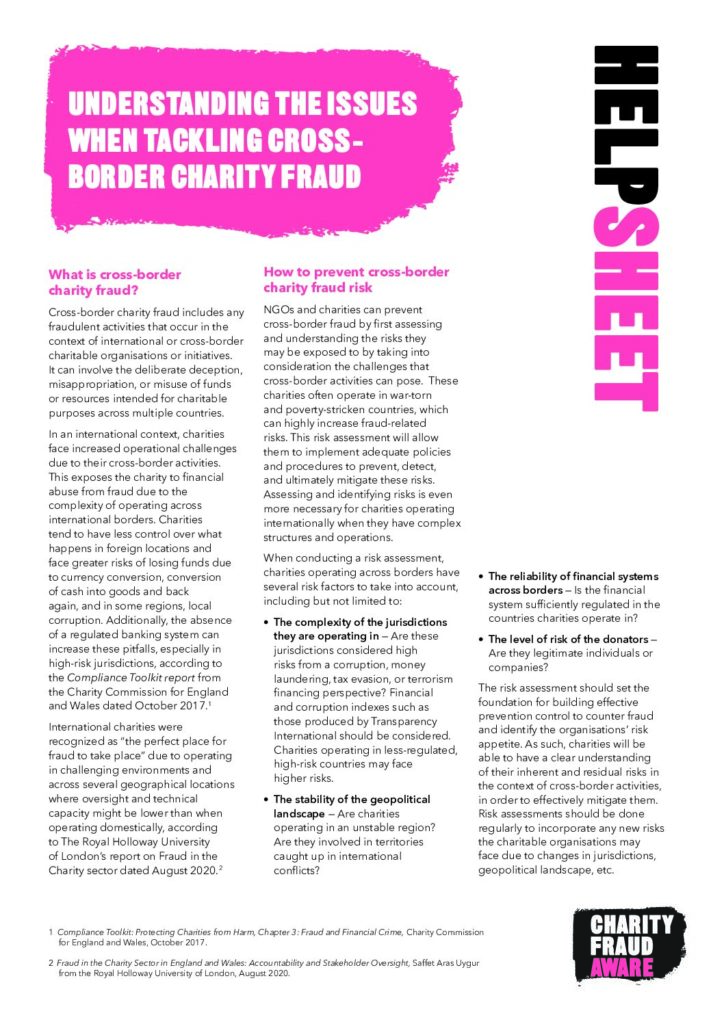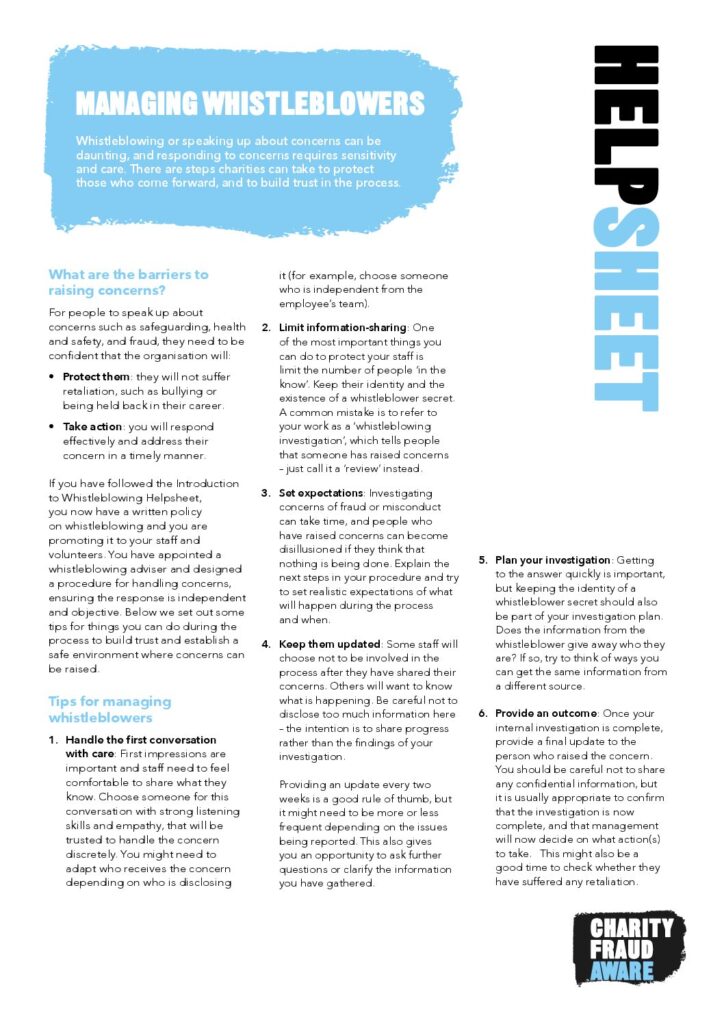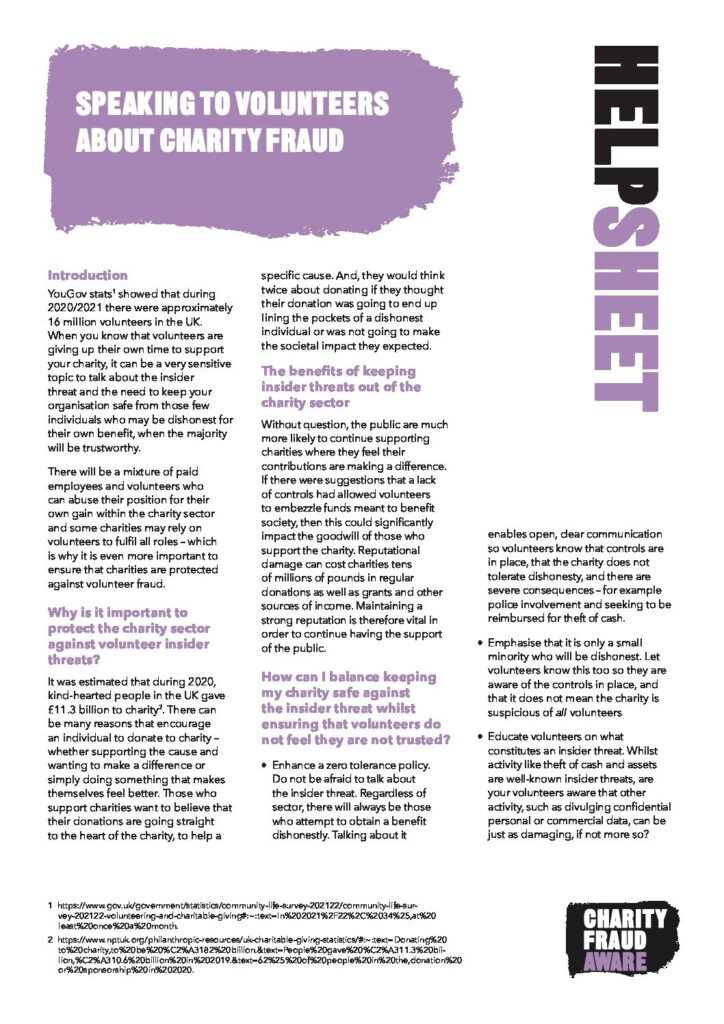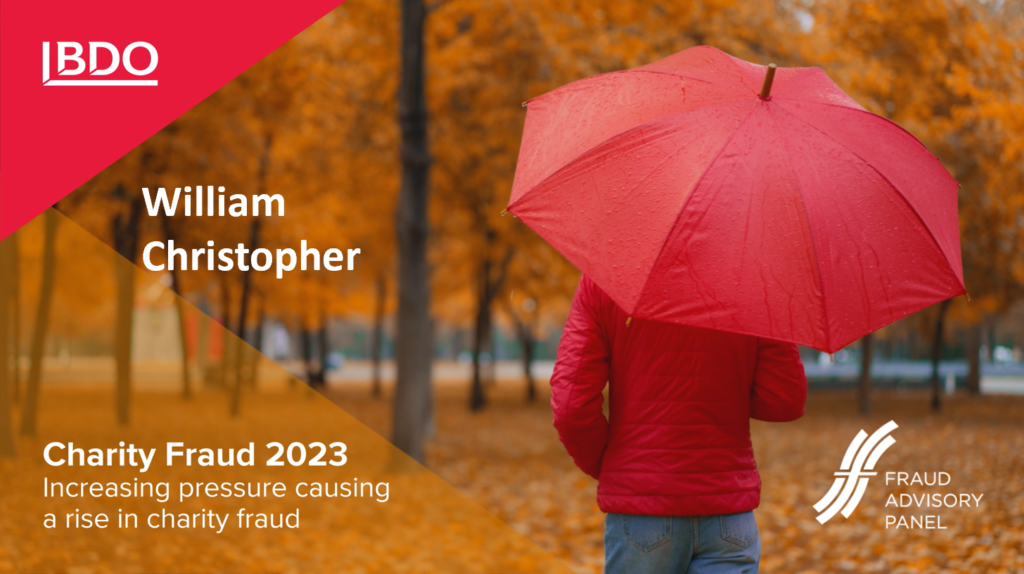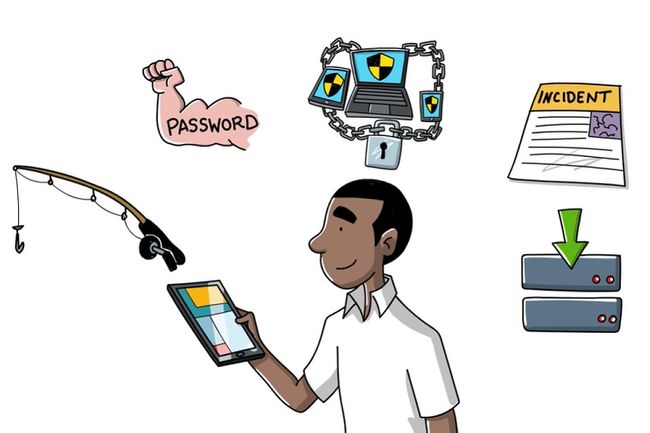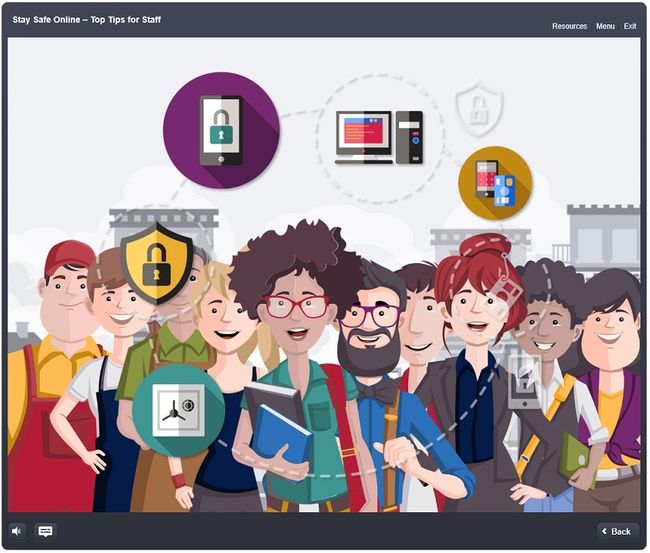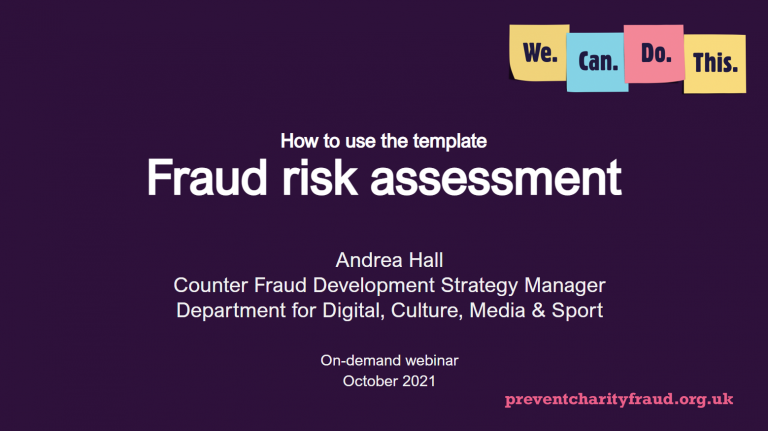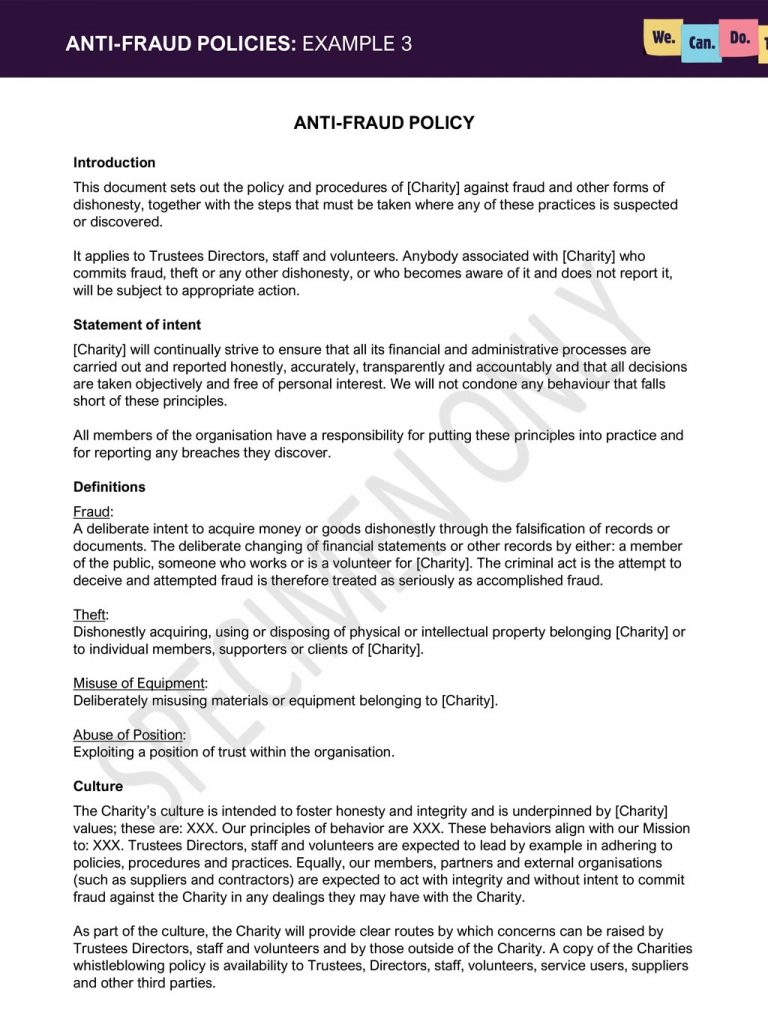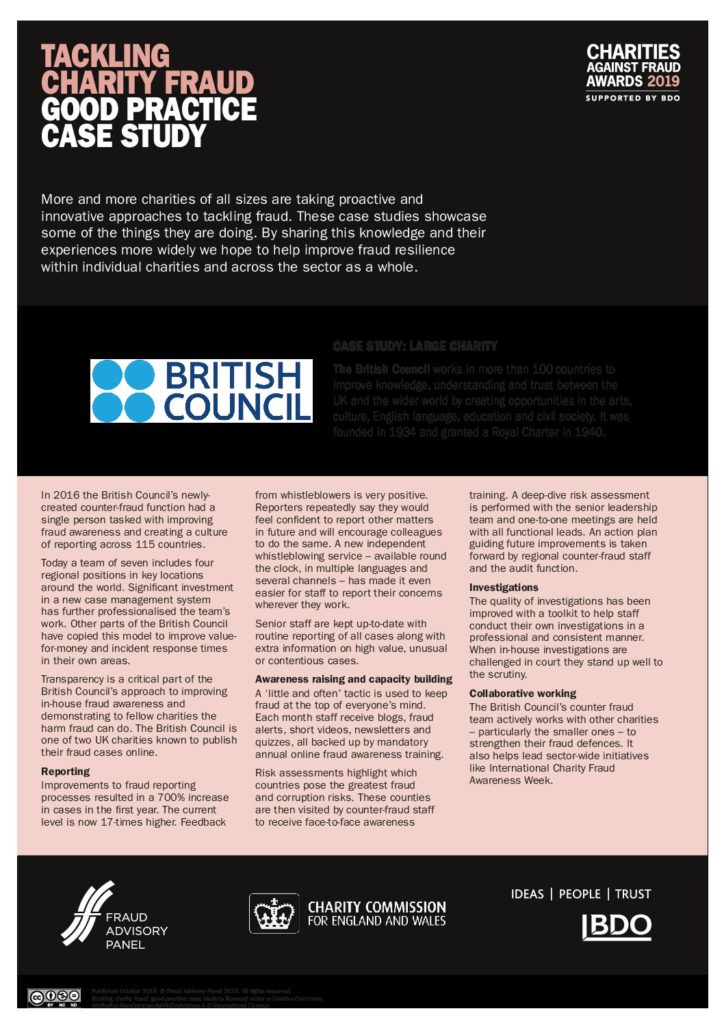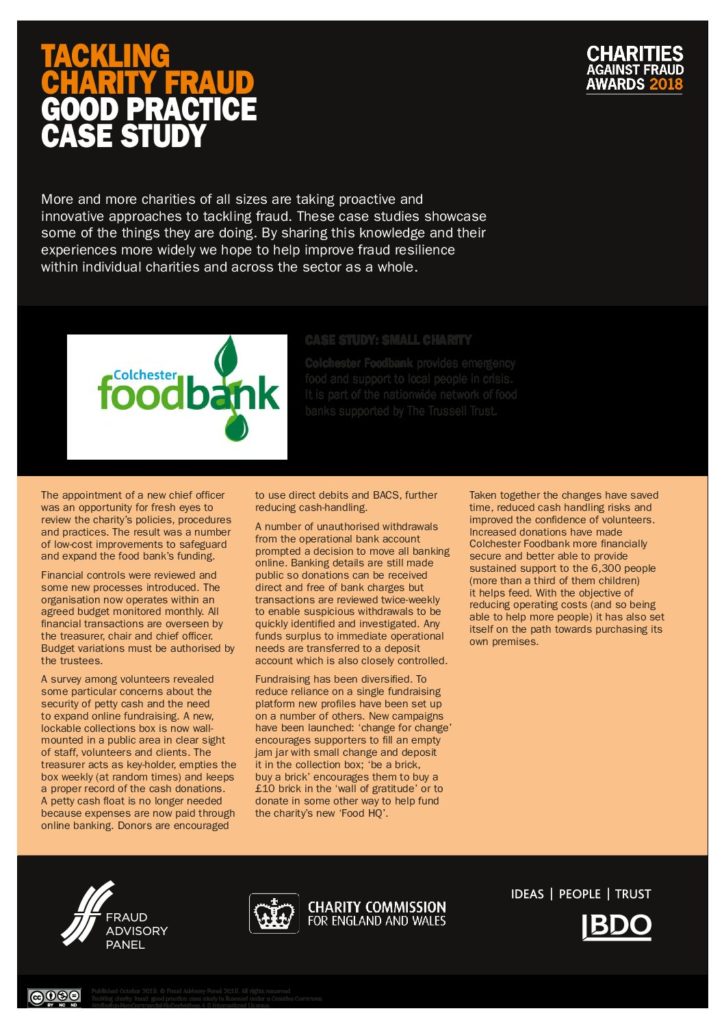Resources
Understand the risks and get the tools to better protect your charity from fraud and cybercrime.
Insights
Legacy Fraud: Where there’s a Will there’s a way!
December 1, 2023
Fraud is a risk to any charitable organization. Fraudsters will not discriminate in relation to the mission of the charity, the number of staff or the amount of funding received…
Fraud Risk in INGOs
December 1, 2023
Fraud is a risk to any charitable organization. Fraudsters will not discriminate in relation to the mission of the charity, the number of staff or the amount of funding received…
Protecting Your Charity’s Online Reputation
November 30, 2023
It could be said that as a charity, it’s more important to protect your reputation than for other kinds of organisation. All organisations rely to a degree on earning the trust of their customers, suppliers, partners and the market at large to flourish and grow, or indeed stay in business.
E-learning
Templates
A selection of templates which can be tailored to the needs of your charity.
Case studies
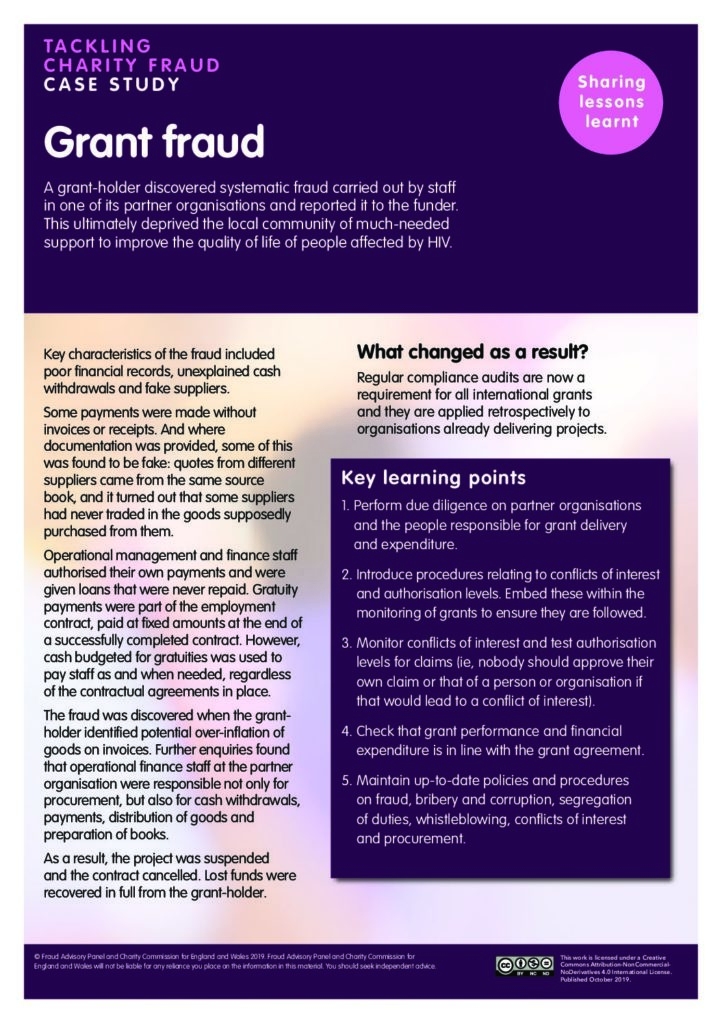
A grant-holder discovered systematic fraud carried out by staff in one of its partner organisations and reported it to the funder. This ultimately deprived the local community of much-needed support to improve the quality of life of people affected by HIV. Learn more about what happened and what was changed as a result.
